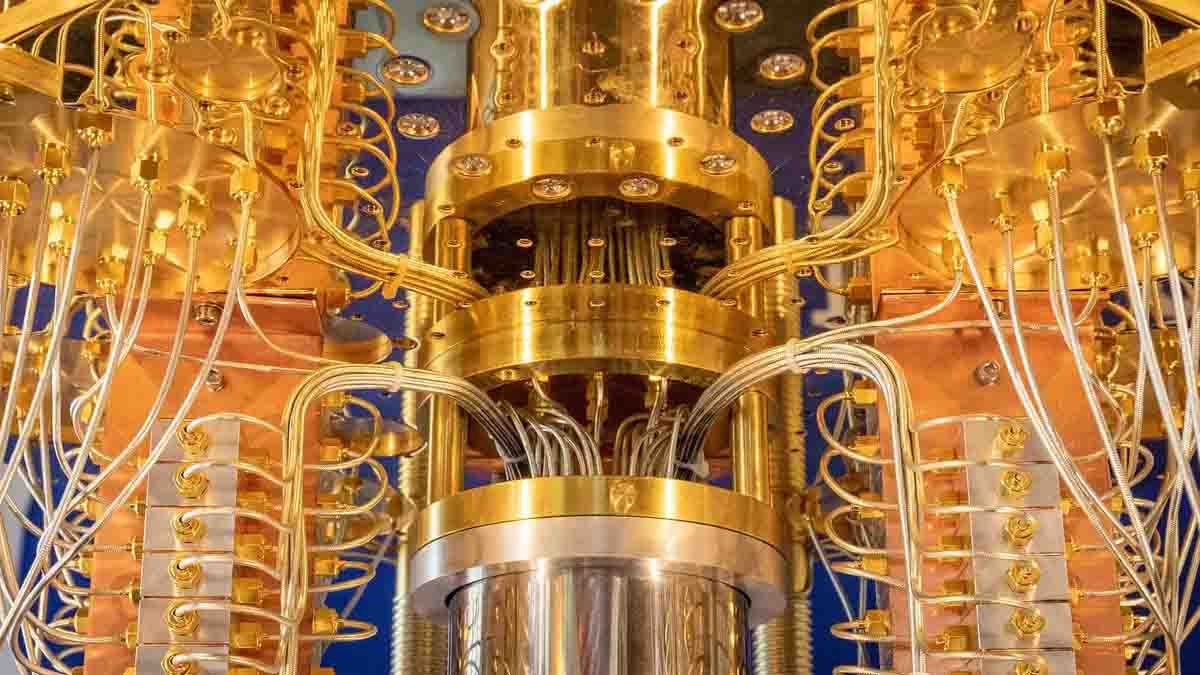Science & Technology, UK (Commonwealth Union) – As technology gets further integrated into every aspect of our lives, it will come as no surprise that quantum computers are very much in focus. quantum computers are a type of computer that use quantum mechanical phenomena to process and store information. They have the potential to solve certain computational problems that are currently intractable for classical computers, and they are an active area of research and development.
Researchers from the University of Sussex and Universal Quantum revealed for the 1st time that quantum bits (qubits) are able to directly transfer between quantum computer microchips and revealed this with record-breaking preciseness and speed. This major step forward resolves a key obstacle for producing quantum computers large and strong enough to handle complex issues, crucial to society.
Presently, quantum computers function on the 100-qubit scale. Many experts are foreseeing millions of qubits that will be needed sort out vital issues, where the current powerful supercomputers are incapable of solving. A worldwide quantum race is underway to form quantum computers capable of solving the many significant issues in society from drug discovery to increased energy efficiency and resolving significant issues in just about every industry.
The research paper, that was published this month in Nature Communications, saw the researchers show how they have applied a new and powerful method, which they refer to as the ‘UQ Connect’, to utilize electric field associations to allow qubits to go from one quantum computing microchip module to another with unequalled speed and accuracy. This paves the way for chips to slot together to form a quantum computer with increased power.
The University of Sussex and Universal Quantum team able to move the qubits with a 99.999993% success rate together with a connection rate of 2424/s, which were world records and orders of magnitude superior to prior solutions.
Professor Winfried Hensinger, who is the Professor of Quantum Technologies at the University of Sussex and Chief Scientist as well as Co-founder at Universal Quantum says “As quantum computers grow, we will eventually be constrained by the size of the microchip, which limits the number of quantum bits such a chip can accommodate. As such, we knew a modular approach was key to make quantum computers powerful enough to solve step-changing industry problems. In demonstrating that we can connect two quantum computing chips – a bit like a jigsaw puzzle – and, crucially, that it works so well, we unlock the potential to scale-up by connecting hundreds or even thousands of quantum computing microchips.”
As they associated the modules at a world-record speed, the researchers further confirmed that the ‘strange’ quantum nature of the qubit stayed untouched when it was transported.
Dr Mariam Akhtar led the research when she was a Research Fellow at the University of Sussex and Quantum Advisor at Universal Quantum and stated that the team has shown that fast and coherent ion transfer utilizing quantum matter links. The experiment gave validation to the unique architecture that Universal Quantum was forming, while giving an exciting path into a truly large-scale quantum computer.
Professor Keith Jones, Interim Provost and Pro-Vice Chancellor for Research and Enterprise at the University of Sussex, says “This is a very exciting finding from our University of Sussex physicists and Universal Quantum. It proves the value and dynamism of this University of Sussex spin-out company, whose work is grounded in rigorous and world-leading academic research. Quantum computers will be pivotal in helping to solve some of the most pressing global issues. We’re delighted that Sussex academics are delivering research that offers hope in realising the positive potential of next-generation quantum technology in crucial areas such as sustainability, drug development, and cybersecurity.”







